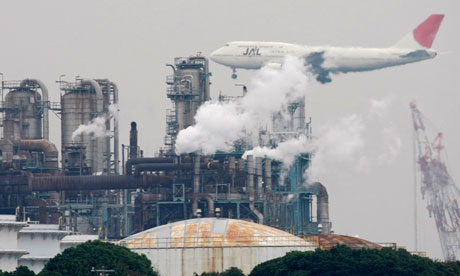The lesson the world is learning the hard way from the financial crisis is that there is only one boat and we are all in it. To stay afloat, we need rules tough enough to stop systemic risks becoming systemic collapses. This lesson is as true for the environment as it is for the economy.
A key battle in the campaign to build an effective system of global rules will shortly take place in Durban, where the UN climate negotiations reopen at the end of this month. The International Energy Agency has set the scene, with the timely warning in its new World Energy Outlook that we are way off track to avoid dangerous climate change, and that the window for effective action is closing fast.
It is fashionable to argue that a new climate treaty, based on the Kyoto architecture of legally binding carbon caps, is dead. We should, on this view, give Kyoto a decent burial and switch to plan B. This turns out to be a looser arrangement in which governments make voluntary pledges to each other. Its advocates often call themselves "realists".
The case for voluntarism was first put by those who want to try less hard to deal with climate change. It has subsequently attracted support from academics and other commentators whose concern – indeed alarm – about the climate is unquestionable. They may be desperate rather than cynical, but they tend to know more about the climate than they do about diplomacy. The problem is in the politics not the architecture.
The choice between what needs to be done but looks impossible, and what can be done but is clearly not enough, is as old as history. It lay behind the struggle between Churchill and Halifax as Britain faced Hitler's tanks on the Channel coast. Nato's success in Libya was conducted against a barrage of predictions that it would lead to years of stalemate. When there is no alternative, realism lies in expanding the limits of the possible, not in nourishing the delusion that something else might help.
There really is no plan B for the climate. A voluntary framework will not be enough to keep us within the 2C limit of manageable climate change. Unmanageable climate change will precipitate systemic collapses, including of our food and water security. Success or failure will depend on governments convincing investors that they are determined to enact the policies necessary to drive private capital towards a low-carbon future. In the boardroom a voluntary pledge from a government sounds rather like "maybe". That's why in the UK we have set legally binding carbon budgets through the Climate Change Act.

For more info: http://p1n.in/tqd
A key battle in the campaign to build an effective system of global rules will shortly take place in Durban, where the UN climate negotiations reopen at the end of this month. The International Energy Agency has set the scene, with the timely warning in its new World Energy Outlook that we are way off track to avoid dangerous climate change, and that the window for effective action is closing fast.
It is fashionable to argue that a new climate treaty, based on the Kyoto architecture of legally binding carbon caps, is dead. We should, on this view, give Kyoto a decent burial and switch to plan B. This turns out to be a looser arrangement in which governments make voluntary pledges to each other. Its advocates often call themselves "realists".
The case for voluntarism was first put by those who want to try less hard to deal with climate change. It has subsequently attracted support from academics and other commentators whose concern – indeed alarm – about the climate is unquestionable. They may be desperate rather than cynical, but they tend to know more about the climate than they do about diplomacy. The problem is in the politics not the architecture.
The choice between what needs to be done but looks impossible, and what can be done but is clearly not enough, is as old as history. It lay behind the struggle between Churchill and Halifax as Britain faced Hitler's tanks on the Channel coast. Nato's success in Libya was conducted against a barrage of predictions that it would lead to years of stalemate. When there is no alternative, realism lies in expanding the limits of the possible, not in nourishing the delusion that something else might help.
There really is no plan B for the climate. A voluntary framework will not be enough to keep us within the 2C limit of manageable climate change. Unmanageable climate change will precipitate systemic collapses, including of our food and water security. Success or failure will depend on governments convincing investors that they are determined to enact the policies necessary to drive private capital towards a low-carbon future. In the boardroom a voluntary pledge from a government sounds rather like "maybe". That's why in the UK we have set legally binding carbon budgets through the Climate Change Act.

For more info: http://p1n.in/tqd

No comments:
Post a Comment